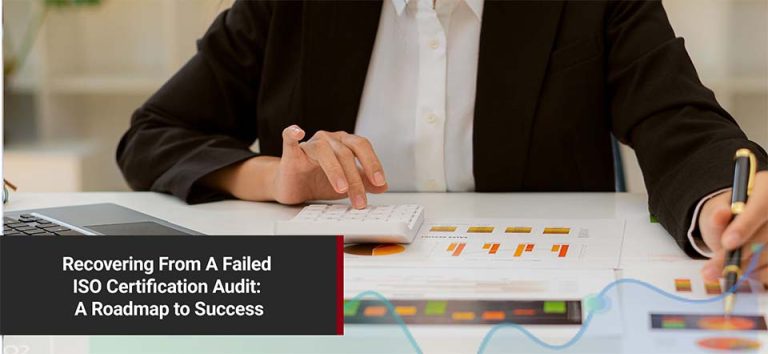Facing a failed ISO certification audit can be disheartening for any organization. However, it’s crucial to approach this setback as an opportunity for growth and improvement. Here you can explore the steps you can take after a failed ISO certification audit to recover effectively and emerge stronger than before. Whether you’re in Ajman or anywhere else in the UAE, or in any other country, UCS is here to guide you through the process.
Understanding The Impact
Firstly, let’s acknowledge the impact of a failed ISO certification audit. It may lead to loss of credibility, damage to reputation, and potential setbacks in business opportunities. However, it’s essential to remember that it’s not the end of the road. Many successful organizations have faced similar challenges and turned them into valuable learning experiences.
Assessing The Root Causes
To move forward, it’s crucial to understand why an audit was unsuccessful. Was it due to non-compliance with specific ISO standard requirements? Were there gaps in documentation or implementation processes? Or was the concerned person who is responsible for maintaining all the standard requirements not availble during the audit? To know the answers to these questions and to pinpoint the root causes of failure you need to conduct a thorough analysis. This assessment will provide valuable insights for corrective actions.
Developing A Corrective Action Plan
Based on the identified root causes, you need to develop a detailed corrective action plan. This plan should outline specific steps to address deficiencies, improve processes, and ensure compliance with ISO standard requirements. Assign responsibilities to team members and establish clear timelines for implementation. Remember, effective corrective actions require collaboration and commitment from everyone involved.
Implementing Continual Improvement
A failed audit presents an opportunity to strengthen your organization’s management system. By reviewing and updating the processes, procedures, and documentation you are embracing continual improvement. Encourage feedback from employees who attended the certification audit and prioritize ongoing training and development to enhance awareness and compliance with ISO standard requirements.
Seeking Professional Guidance
Navigating the post-audit recovery process can be challenging, especially if you’re unsure about the necessary steps to take. That’s where third party consultants, such as UCS come in, who has specialized experts in ISO standard requirements and management systems. We will work closely with your organization to assess the situation, develop tailored solutions, and guide you towards a successful ISO certification audit.
Rebuilding Trust And Confidence
Recovering from a failed audit is not just about meeting ISO standard requirements; but also about rebuilding trust and confidence internally and externally through communicating transparently with stakeholders about the actions being taken to address audit findings, and demonstrating commitment to quality and continual improvement through tangible results and measurable outcomes.
Preparing For Reassessment
Once the corrective actions of audit findings have been implemented, it’s time to prepare for reassessment. This involves conducting an internal audit to ensure that all the issues have been effectively resolved and that your organization is compliant with ISO standard requirements. Consider engaging an external auditor, such as UCS, for a pre-assessment review to identify any potential gaps before the official reassessment.
Celebrating Success And Learning
Regardless of the outcome of the reassessment, take the time to celebrate the progress made and the lessons learned throughout the recovery process. Every challenge presents an opportunity for growth and improvement. Use this experience to further strengthen your organization’s management system and practices, and continue striving for excellence.
Summary
Recovering from a failed ISO certification audit requires resilience, determination, and a proactive approach to improvement. By understanding the root causes, developing a comprehensive corrective action plan, seeking professional guidance, and embracing continual improvement, your organization can emerge stronger and more resilient than before. At UCS, we’re committed to support organizations in their journey towards ISO certification success. For more insights into ISO certification, management systems, best practices, and to learn more about our services and how we can help you pass the certification audit connect with us via our website or through email.
Remember, a failed audit is not the end of the road – it’s an opportunity for growth and transformation. Embrace the challenge, learn from it, and emerge stronger than ever before.


